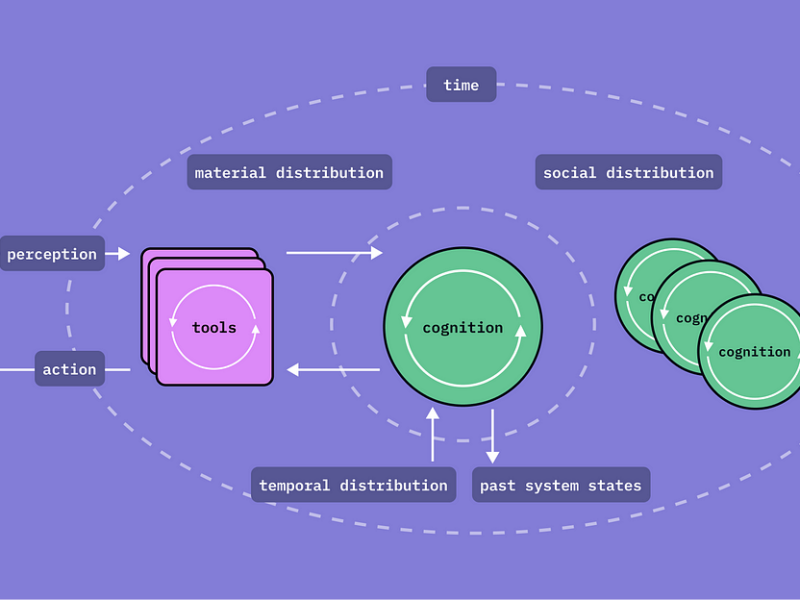[ad_1]
Constructing on the thought of distributed cognition, the place pondering emerges by means of the interaction of minds, instruments, and environments, one key precept stands out: the idea of cognitive offloading. This refers back to the method people offload psychological duties onto the atmosphere, utilizing artifacts, applied sciences, and even different individuals to cut back the burden on their cognitive techniques and improve their capacity to assume, motive, and resolve issues.
Sense-making — whether or not it’s tackling a posh downside, brainstorming concepts, or navigating on a regular basis challenges — doesn’t occur in isolation. As an alternative, it unfolds in collaboration with the world. By perceiving, exchanging, and manipulating data in hybrid techniques of human-tool or human-technology interactions, we lengthen the boundaries of cognition far past the mind. Consider utilizing a calculator to unravel a math downside, or a collaborative app to plan a challenge. These are examples of offloading, the place instruments change into companions within the cognitive course of.
Designing for cognitive offloading is essential, particularly in AI functions the place customers work together to kind digitally supported cognition. The aim is to create environments that not solely facilitate offloading, but in addition empower customers to seamlessly and successfully lengthen their pondering.
Let’s take a more in-depth take a look at some standout AI functions that excel at managing cognitive offloading and discover the important thing ideas behind their effectiveness.
1. Understanding consumer ache factors
Cognitive effort can really feel like a type of ache. Psychological effort is intrinsically pricey, because it calls for a major quantity of cognitive assets merely as a result of method our brains operate. That is rooted in how the mind manages power — psychological effort consumes glucose, the mind’s power supply, which may result in fatigue and emotions of discomfort. This discomfort is usually skilled as psychological resistance and even avoidance, which explains why individuals are vulnerable to procrastinate on mentally taxing duties. Temporal Motivation Concept additionally helps it, stating that duties perceived as tough or unenjoyable, particularly with out quick rewards, are prone to be postponed.
Customers are naturally drawn to instruments that reduce this sense of effort.
To design successfully, begin by figuring out ache factors: observe consumer habits, conduct interviews, and uncover the cognitive duties that sluggish them down. Then, design options that seamlessly offload these burdens.
[ad_2]
Source_link






